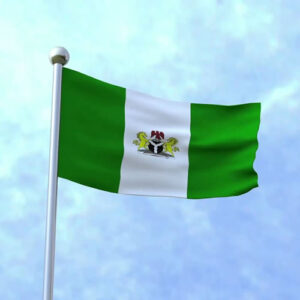
“True religion is real living; living with all one’s soul, with all one’s goodness and righteousness.” – Albert Einstein
As Nigeria celebrates its 64th Independence Day, it is essential to reflect on the diverse beliefs that shape our national identity. In a recent Civic Education class discussion on “Skills Necessary for the Preservation of Traditions, Customs, and Beliefs,” several key points emerged that sparked my thoughts on the intersection of religious tolerance and cultural heritage.
A vital idea I emphasised to my students is the importance of respecting others’ beliefs. It is both disrespectful and unkind to belittle or dismiss someone’s religious convictions. As a lifelong Christian and a devout Catholic, I have never questioned the gods of our ancestors or asserted their powerlessness.
It puzzles me how some educated individuals easily overlook or ridicule African traditional religions. This raises a fundamental question: How did so many Africans come to believe that the gods of their forebears were inferior to those introduced by foreign missionaries? Many have embraced foreign religions without fully recognizing the rich spiritual systems that shaped their ancestors’ lives.
Africa is a melting pot of foreign influences, from languages and clothing to food and lifestyles. This cultural shift is profoundly articulated by Frantz Fanon, the revolutionary thinker from Martinique, in his works such as Black Skin, White Masks and The Wretched of the Earth. Fanon argues that colonialism not only subjugates people physically but also distorts and dismantles their cultural identity. Consequently, Africa has been conquered not only in a physical sense but also spiritually and culturally.
When discussions about the loss of heritage arise, some adherents of foreign faiths often respond defensively, questioning the beliefs of others. While they may challenge my own Christian faith, I remain steadfast in my conviction that we must promote tolerance and understanding.
Recognising our diversity—ethnic, cultural, and religious—requires us to embrace the freedom to practice our beliefs as long as they do not harm others. Our commitment to a particular faith often stems from personal experiences that many may not understand. It’s important to remember that individuals embrace faith not only through personal exploration but also through the work of the supreme being they believe in.
Consider this: Hinduism existed long before Christianity and Islam – the two dominant religions in Nigeria. Back in Junior Secondary School 2, I explored Hinduism while writing a story about a protagonist connected to the religion. My fascination with Hinduism inspired dreams of visiting India for firsthand experience. I once told friends that if I ever left Christianity, I would convert to Hinduism. This personal reflection underscores a broader truth: long before the religions we now profess, other belief systems connected people with the divine.
Mahatma Gandhi wisely stated, “I do not want my house to be walled in on all sides and my windows to be stuffed. I want the cultures of all the lands to be blown about my house as freely as possible. But I refuse to be blown off my feet by any.” In that spirit, let us foster an environment where everyone can practice their beliefs in peace.
As we commemorate our independence today, let us commit to preserving our rich cultural heritage while promoting tolerance among our diverse faiths. This Independence Day, may we celebrate not only our freedom but also the beauty of our collective beliefs. Happy 64th Independence Day, Nigerians!
* Chinedu Vincent Okoro, a Rotarian, educator, poet and advocate for social change and mental health, writes from Abuja
